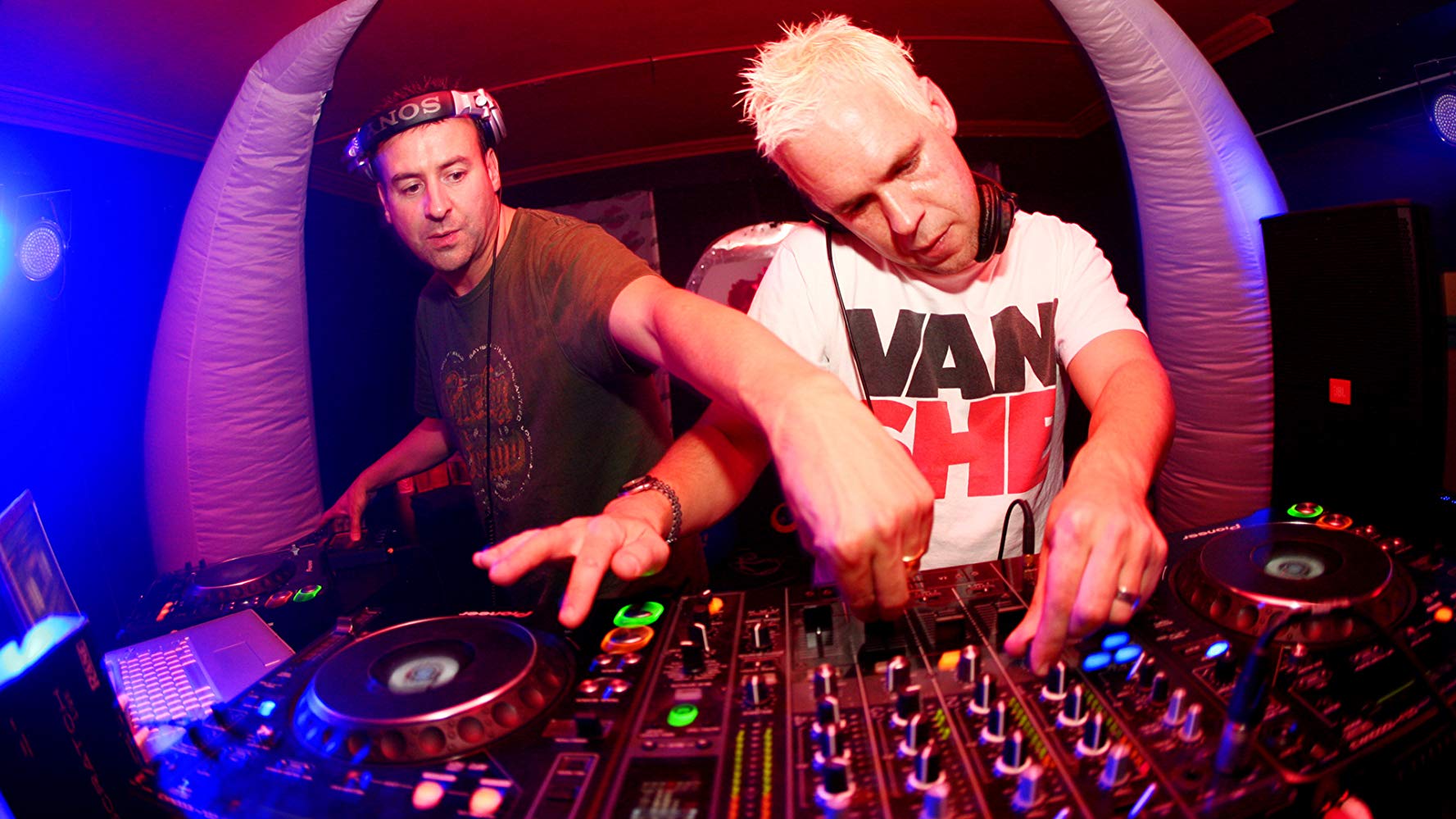I caught up with Jez Willis from Utah Saints whilst at Beatherder to chat about the timelessness of house music as well as their centrality in a somewhat underrepresented rave scene in Leeds in the nineties.
Utah saints have curated the Ring Stage at Beatherder festival in Skipton for over 10 years, ‘we started Beatherder in 2007, two years after it began and just got on really well with the people that organise it’. Starting at only 1500 capacity he described it as having ‘a real soul which is a real intangible quality, the guys do an amazing job.’
I asked what Utah Saints were up to now in terms of music, he said ‘we don’t put much out, that’s kinda deliberate so we have less pressure to get hung up on chart positions and things like that. There’s still pressures and competition between artists, with the danger of comparison something you have to overcome as “the people that succeed are the people who don’t care what everybody else is doing”, joking that “that’s how we ended up with Trump.”
Utah Saints first began as they bid their teenage years farewell in 1991 meaning their career has spanned over nearly three decades beginning with promoting club nights in Leeds and owning a club called The Gallery, which is now an office block. “We’ve been based in Leeds since the beginning,we were involved right at the epicentre of when rave took off”.
We discussed how the Leeds electronic scene has always been happening but we hear about it less so than, say, Manchester, or London. Jez, who lectures at Leeds College of Music teaches journalism students how, “ when history is written about, rave Leeds gets overlooked a lot due to the Hacienda in Manchester or the M25 London raves.
Everything was happening in Leeds as well but we didn’t want any publicity because Leeds was full.’ Nevertheless, ‘Leeds has got an immense amount of talent” that’s just overshadowed at times” despite the amount of venues and support. I asked if there are any emerging artists that are sticking out to him and it seems ‘Prospa’, an electro duo, are on to watch. ‘We have Prospa on our stage this year but they are based in London now, but we’re claiming them as Leeds.’ Listening to tracks such as prayer by Prospa you can really see a similarity in styles of these house artists from tracks such as what can you do for me in Utah’s 1992 album. ‘There’s been loads of talent from Leeds such as Rudimental who went to Beckett, where Jez sometimes lectures as well.
When asking if he has any advice for people wanting to get into the music business, specifically music journalism he simply said ‘Do stuff. Just be nice and do stuff.’ It seems he’s all for standing out, Mohawk and all, reminding us how “humans are pre-programmed to judge so just try not to do it as much as you can”.
We go onto talk about onto talk about the everlasting presence of house music as a genre, with “lots of people are trying to emulate the nineties sound now”, and he takes no credit for being hailed as the first band to use sampling as “everything’s connected to everything innit’ – lineage right the way through”.
Due to their nineties prominence as a duo, we discuss the constantly evolving music scene and the impact of platforms such as Spotify. “Yeah its really different, one of the weirdest things is getting paid for going out live”, joking about how they always went back to DJing as touring live lost them money back then. “But now its reversed because we used to make so much money on CD sales that it didn’t matter if you lost money doing live and now ticket prices have gone up.
Looking to the future, they tell me about their involvement with more festivals such as Green meadows and their rough plans to release something for their 30 year anniversary next year. Finally I ask if there is anything in Leeds we can look out for Jez jokes that maybe we’ll start an underground house scene again”. Not a bad idea, not a bad idea at all.

